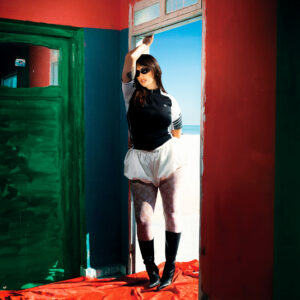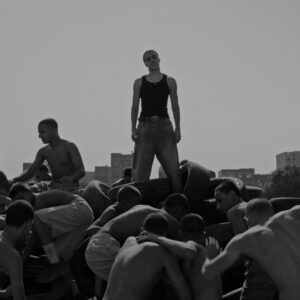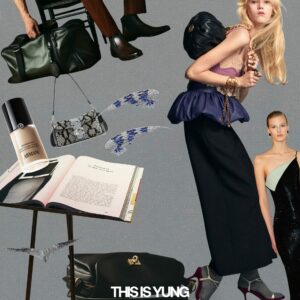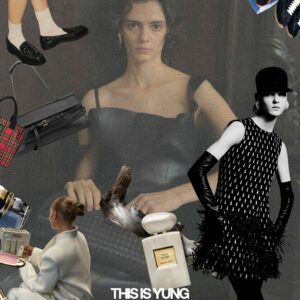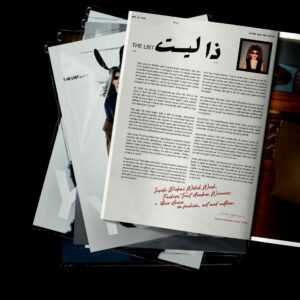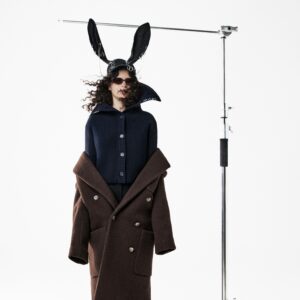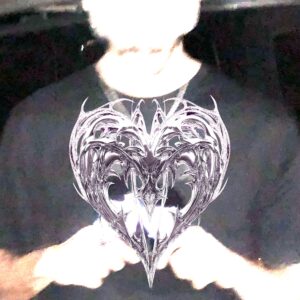Perrie has never been interested in comfort. With every project, she discards one skin to grow another, contorting herself and her art into something unpredictable, sometimes even unrecognizable. In her latest EP, Zaman El Hob El Ka2eeb, Perrie slips into something more intimate. Just in time for Valentine’s Day, she brought us a 5-track, 13-minute study of longing, detachment, heartbreak and the futility of escape.
Throughout her career, Perrie has cultivated two distinct artistic personas: the vulnerable storyteller and the untouchable icon. “I have two sides when it comes to music: the heartbroken version of me that surfaces around Valentine’s Day, and the ego-driven, iconic Perrie, who I aspire to become,” she says. If her past work radiated indestructibility, this project fractures that illusion. It’s as if she’s peeled back her own myth, exposing something stark and unruly beneath.
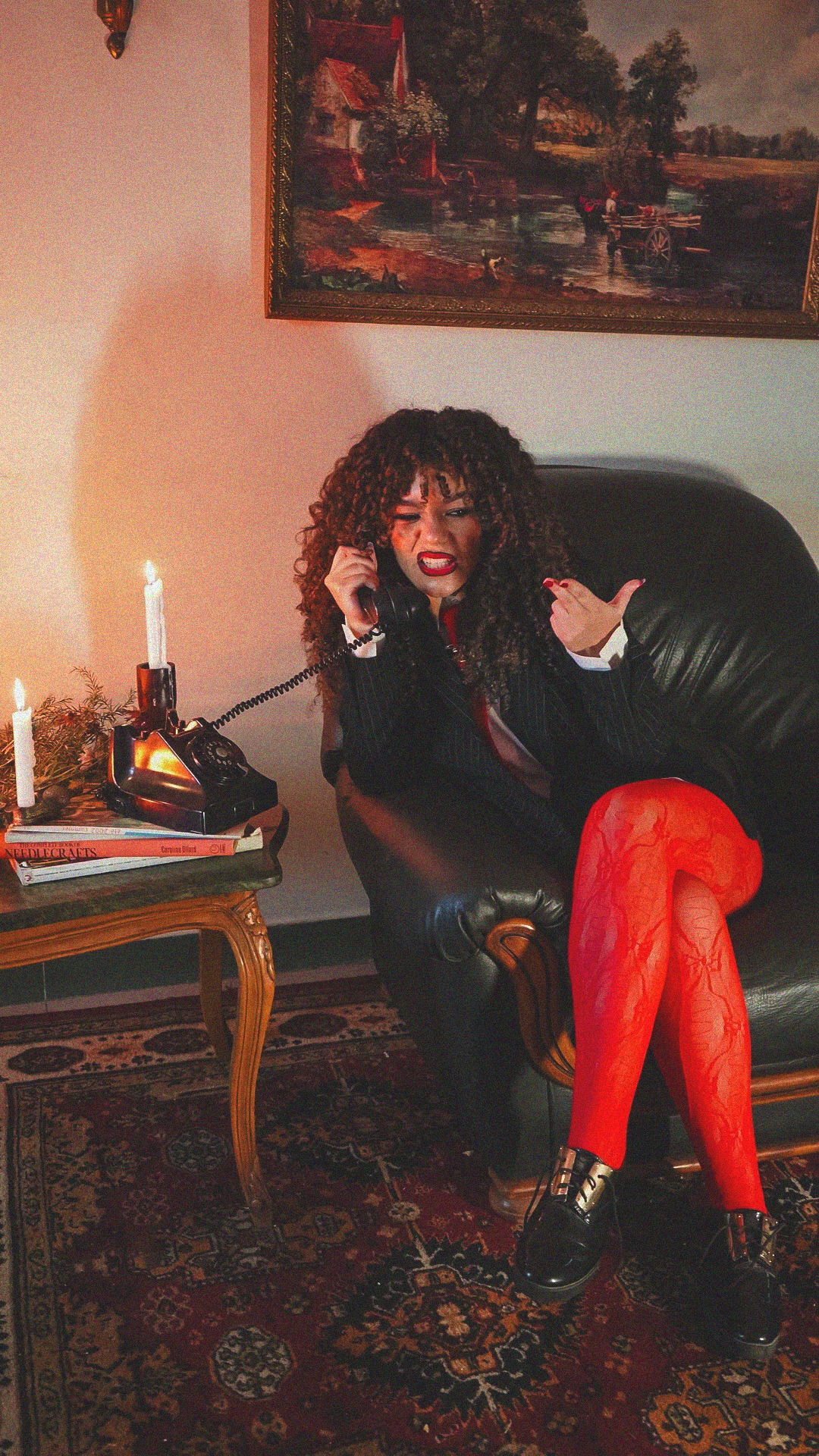
This is Perrie at her most confessional. In our interview, she spoke candidly about the emotional cycle that drives her creative process—how pain, toxicity, and longing become fuel. But there is no resolution—just the endless cycle of emotional reinvention.
The most fascinating paradox of the EP is its confrontation with vulnerability. Perrie lays herself bare, but she also acknowledges the discomfort that comes with such openness, saying, “It’s funny how people say they want honesty in music, but when you really strip yourself down, they don’t know what to do with it.” That tension—the demand for rawness versus the audience’s hesitance to engage with it—permeates throughout the record.
“People love self-destruction. I don’t know why. But they love watching it, connecting to it, seeing themselves in it,” she shares. Throughout Zaman El Hob El Ka2eeb, she dissects heartbreak with an almost clinical precision, yet never allows herself the reprieve of detachment. It cycles through obsession, toxicity, and melancholy, never settling in one place for too long.
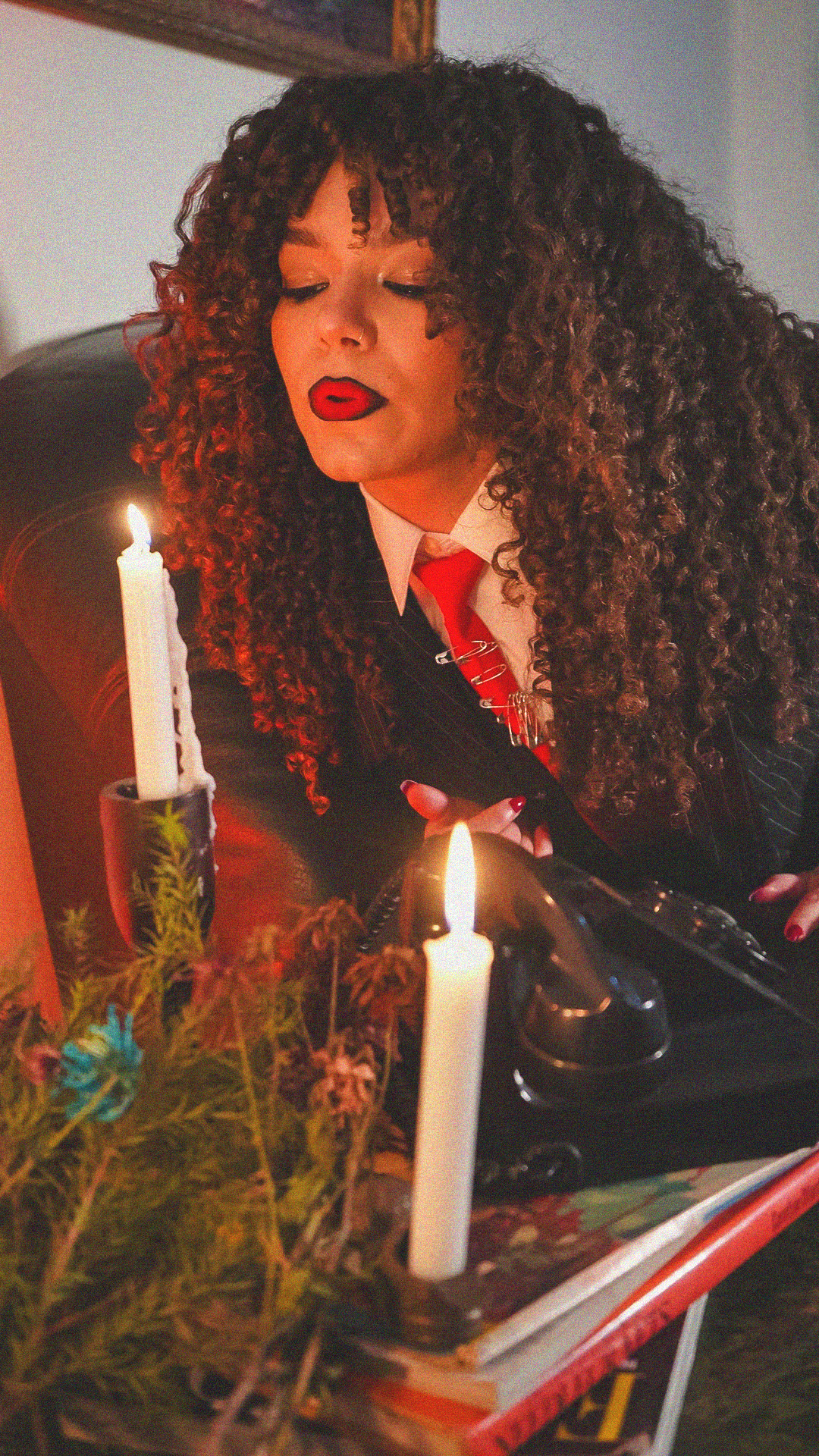
Organic and sprawling, the EP took Perrie into new sonic lands, leaning into live instrumentation, learning to embrace the chaotic discipline of orchestral arrangements. “I always want to be ahead of the curve. Even if it comes with resistance, I want people to listen and say, ‘I’ve never heard this before.’ That’s the goal,” she says. What results is a soundscape that feels at once intimate and cinematic, as though Perrie is scoring her own unraveling.
From the opening track, there’s an intentional discomfort. As she slips into the next track “Skoot” she resists embellishment, choosing instead to let silence, breath, and unpolished space carry the emotional weight. “Stripped down and bare? Excuse me? Where’s the 808? Where’s the bass? Where are the drums? Could never be me.” And yet, it is her—perhaps more her than ever before. “I left a lot of space for the music. It doesn’t sound that bad, actually, when you just let the music be the main character,” she admits.
And yet, despite the heavy subject matter, there is no self-pity here. Instead, there’s a tongue-in-cheek awareness of her own patterns. “I think it’s toxic that after every breakup, I have to remind myself—it’s gonna be me, always. Like, what am I doing?” she said, laughing. This tension—between self-awareness and self-destruction—is what makes this EP so gripping.
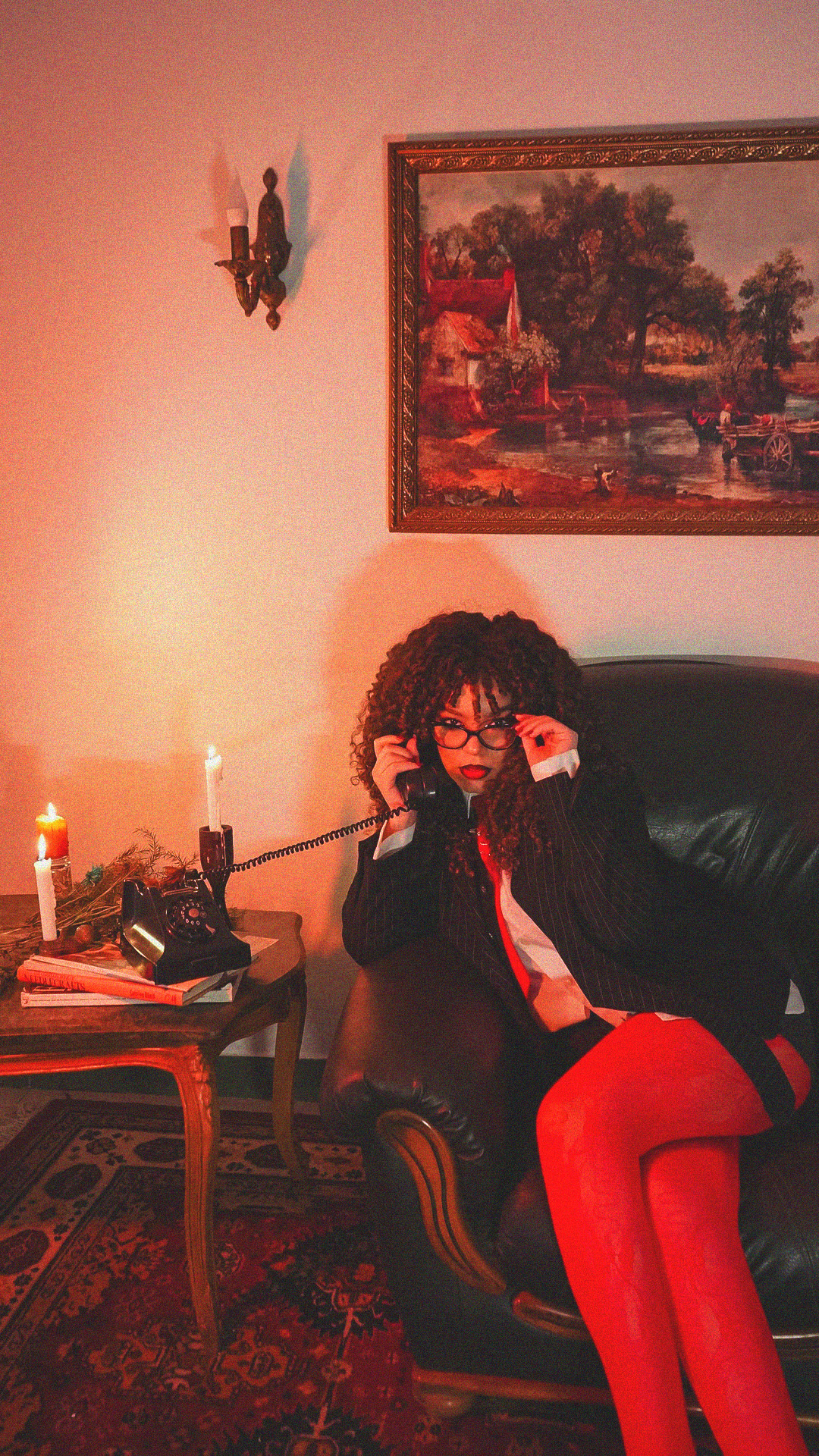
Beyond the personal excavation, the EP is also a protest against creative complacency. Perrie is frustrated—by the predictability of the industry, by the ways artists recycle themselves for safety. “Everyone keeps saying they want something new, but the industry is full of copy-paste. Same flows, same beats, same effects. It’s exhausting.”
For Perrie, predictability is anathema. “I never want people to know what to expect from me. I want them to press play and go, ‘What the hell is this?’ in the best way possible,” she says. She pushes herself into unfamiliar spaces—sonically, emotionally, structurally—because the alternative is creative death. And if there’s one thing she refuses to be, it’s stagnant.
She also carries the weight of representation in a male-dominated industry. “People say, ‘You started this, you made it easier for female rappers.’ And I’m like, okay. But is it better? I don’t know. It’s easier. But is it safer? That’s the real question.” In Zaman El Hob El Ka2eeb, she continues carving out new spaces for women to express through music, ensuring that ease does not replace true progress.
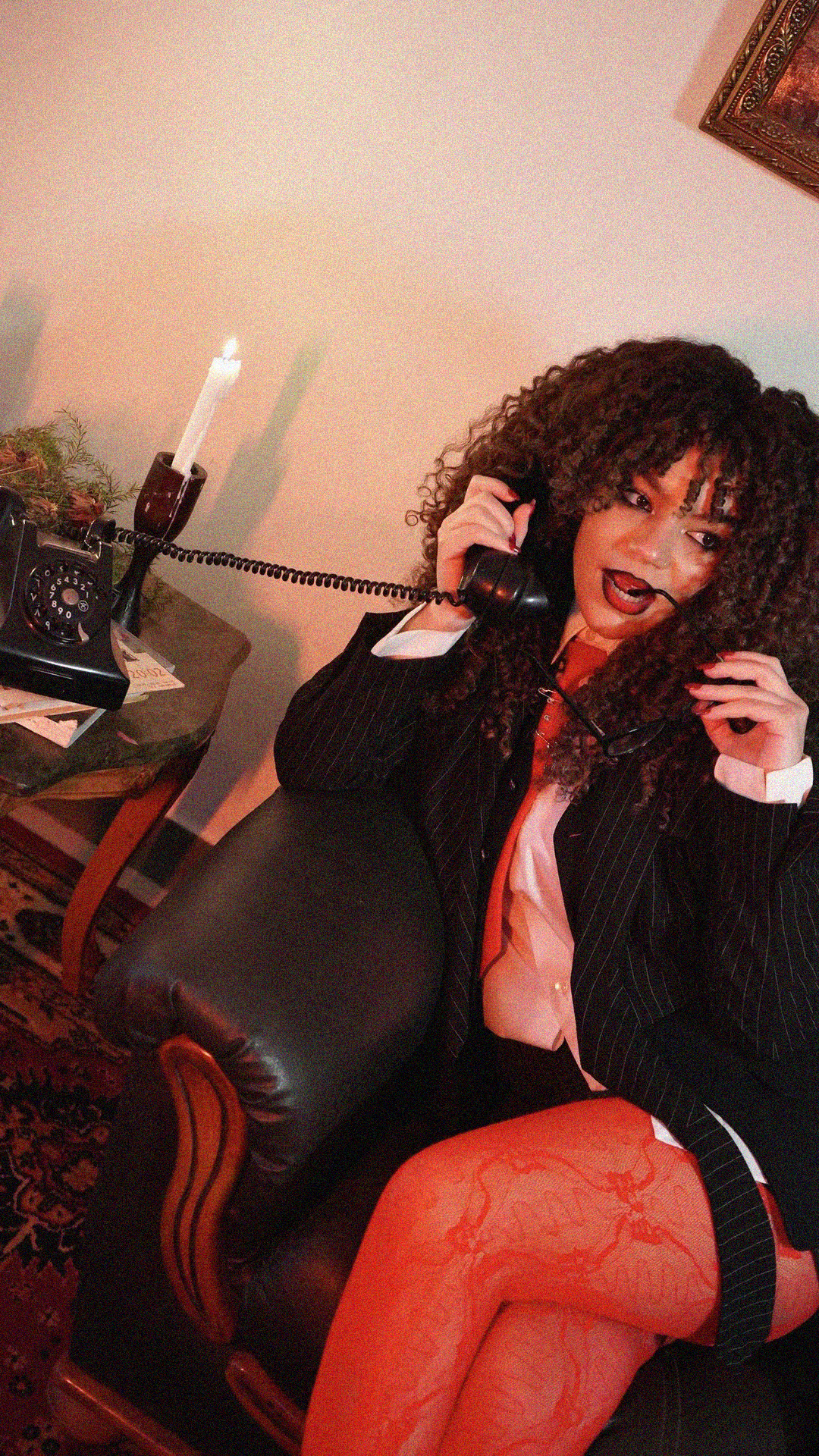
Zaman El Hob El Ka2eeb is not an album designed for mass appeal, it’s not to be liked, it’s designed to be felt. It’s uncomfortable at times, but that’s the point. Perrie has taken her realest emotions, her most toxic cycles, and her sharpest instincts as an artist, and turned them into something cinematic and deeply human. It lingers, unsettles, and refuses easy resolution. She’s challenging not just the listener, but herself, over and over again.
For more stories of regional music, visit our dedicated archives.

